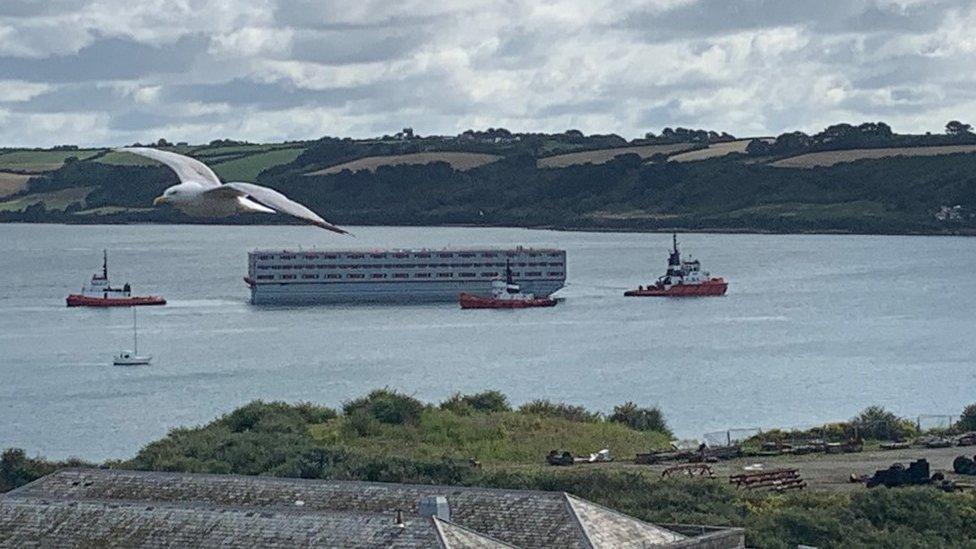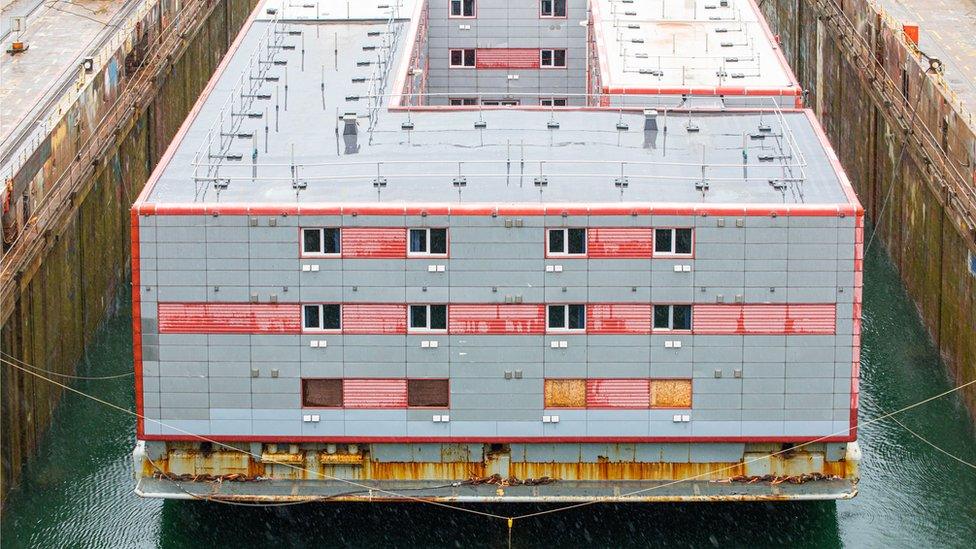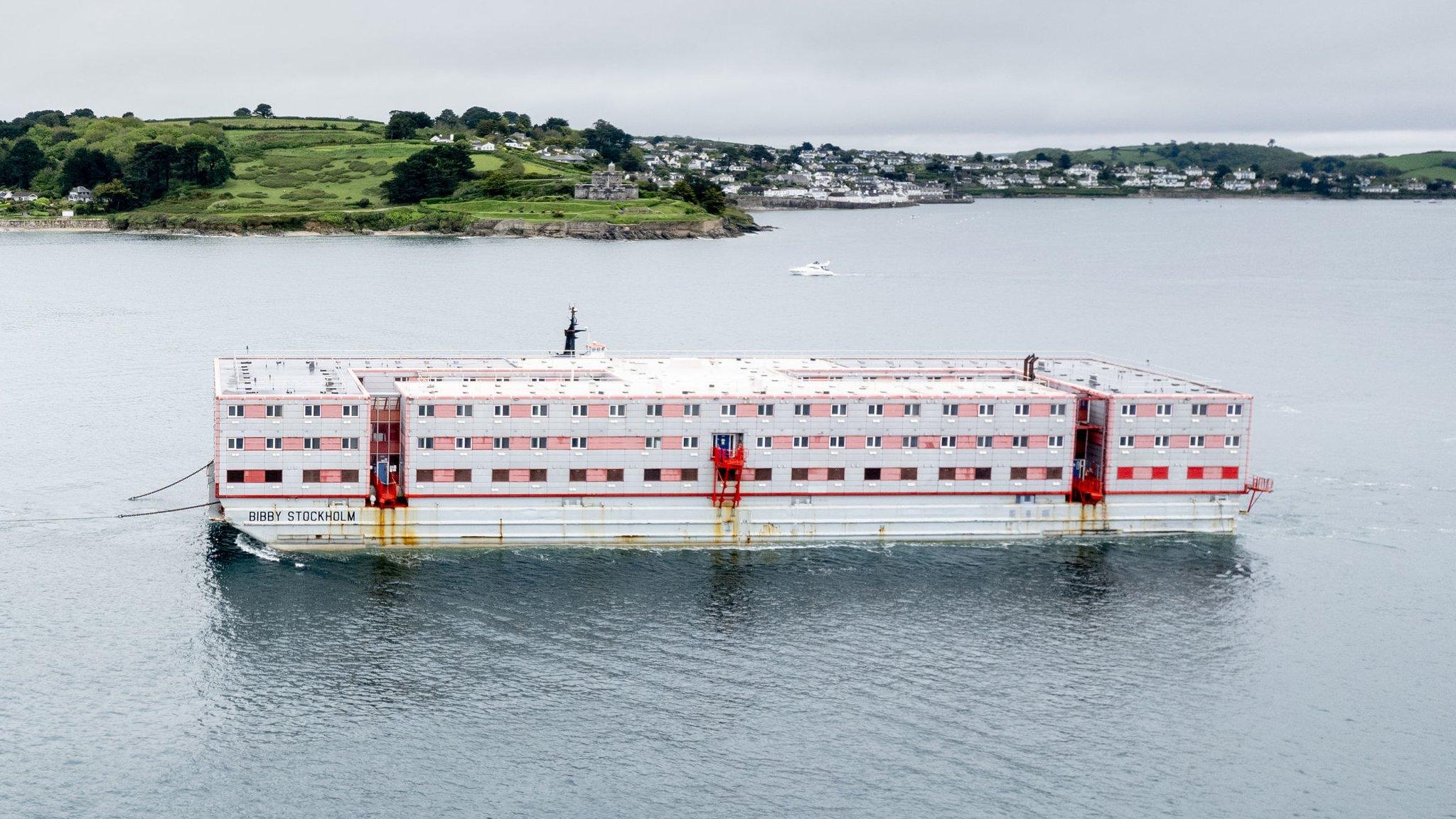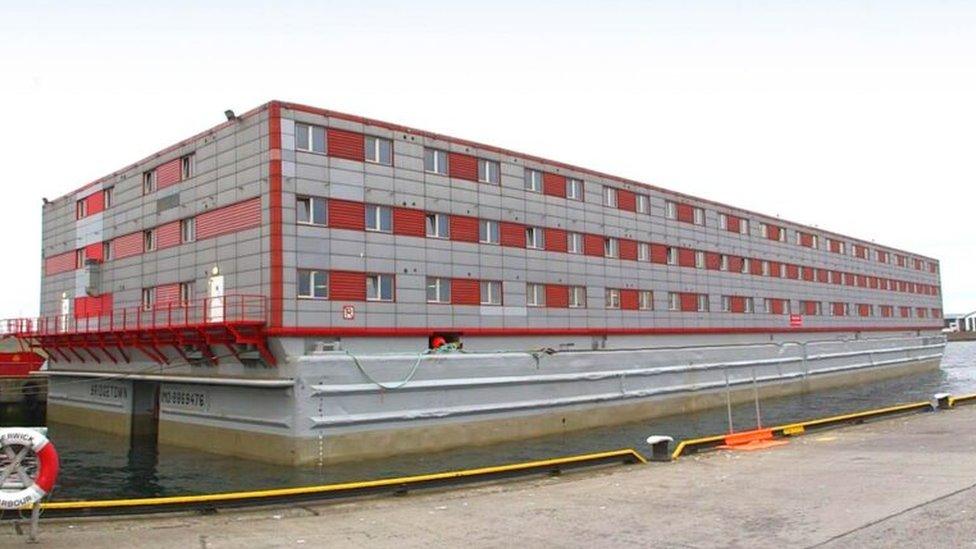Bibby Stockholm: Controversial migrant barge arrives in Portland
- Published

The Bibby Stockholm was pictured leaving Falmouth Harbour on Monday morning
A large accommodation barge that will controversially house hundreds of asylum seekers has arrived in the south coast port of Portland in Dorset.
The Bibby Stockholm left Falmouth Harbour in Cornwall on Monday and was tugged along England's south coast.
The vessel will be a temporary home for up to 500 single adult male asylum seekers under Home Office plans to ease the pressure on the asylum system.
But the vessel's arrival in Dorset is set to be greeted by fresh protests.
Residents in Portland have objected, concerned that the local community was not consulted and fearing the impact on local services like healthcare.
Campaigners have worries about the conditions that people will live under, while others have argued using the barge will not save money.
At a meeting last week, Dorset councillor Laura Beddow said Portland Port was the wrong place to site the barge and added the council had "serious concerns" but had been told legal action was unlikely to succeed.

The barge will provide basic and functional accommodation and healthcare provision
A spokesperson for Portland Port said: "On arrival it will be connected to Portland Port's fresh water and mains sewerage network as part of preparations for the arrival of the first group of asylum seekers in the coming weeks," the spokesperson added.
The barge, which has 222 rooms in total, is contracted to be berthed at Portland for 18 months initially and was being made ready in Falmouth in Cornwall. Its use will be the first time migrants have been housed in a berthed vessel in the UK.
The government said it needed to reduce the cost of housing asylum seekers. It said there were currently about 51,000 asylum seekers in hotels across the UK, costing the taxpayer about £6m a day.
Bibby Stockholm was previously used to house homeless people and asylum seekers in Germany and the Netherlands. It has been refurbished since it was criticised as an "oppressive environment" when the Dutch government used it.
The vessel now has en-suite rooms, a TV and games room and a gym, according to a fact sheet from its owner, Bibby Maritime.
Dorset Council leader Spencer Flower said local authorities in other areas of the country had successfully obtained temporary injunctions against plans to accommodate asylum seekers based on planning laws
But after seeking advice from a leading barrister Dorset Council was advised there were not sufficient grounds for a legal challenge, he said.
"The circumstances at Portland Port are very different because where the barge is to be positioned is below the mean low water mark. This means that the barge is outside of our planning control and there is no requirement for planning permission."
In a statement, the Home Office said that "using vessels as alternative accommodation, like our European neighbours are already doing, will be better value for British taxpayers and more manageable for communities than costly hotels".
Officials were working "extremely closely" with local partners to prepare for the arrival of asylum seekers and "minimise disruption for local residents including through substantial financial support".


Follow BBC South on Facebook, external, Twitter, external, or Instagram, external. Send your story ideas to south.newsonline@bbc.co.uk, external.
Related topics
- Published4 June 2023

- Published24 May 2023

- Published18 May 2023

- Published13 May 2023

- Published27 April 2023

- Published7 April 2023

- Published5 April 2023
